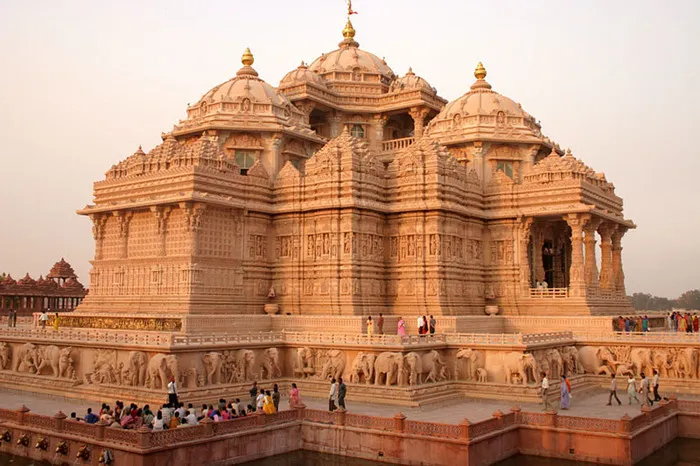Religion is a fundamental component in the lives of millions of people around the world. It influences cultures, traditions and even the policies of entire nations. In some countries, religious practice is so profound that it intertwines with every aspect of everyday life.
Adverts
This article explores the most religious countries in the world, highlighting how faith manifests itself and shapes these societies. Understanding the influence of religion is essential to understanding the social and cultural dynamics of these countries, as well as the motivations and behaviors of their inhabitants.
Come and learn about the historical, social and political impacts of religion in each of these nations, revealing a comprehensive overview of how spirituality continues to shape the modern world.
Afghanistan: The Devotion of Islam
Afghanistan is one of the most religious countries in the world, with Islam being the predominant religion. Virtually the entire population identifies as Muslim, and the religion is deeply rooted in Afghan culture and daily life.
Religious practices, such as the five daily prayers and fasting during Ramadan, are strictly followed. Islamic law, or Sharia, also plays a central role in the country's legal system.
Additionally, religious education is a crucial part of the school curriculum, with children learning about Islamic teachings from an early age.
The influence of religion can be seen in architecture, clothing and even the arts, with Arabic calligraphy and Islamic motifs permeating cultural expression. The Islamic faith in Afghanistan is not just a spiritual practice, but a unifying force that sustains national and communal identity.
India: One of the Countries with the Most Religious Harmony
India is one of the most religious and diverse countries in the world. Home to Hinduism, Buddhism, Jainism and Sikhism, India is also home to a significant Muslim and Christian population. Hinduism is the predominant religion, deeply influencing Indian culture.
Religious festivals like Diwali, Holi and Navaratri are celebrated with great fervor. India's religious diversity exemplifies how different faiths can coexist in harmony, enriching the country's cultural tapestry.
In addition to major festivals, everyday life is permeated by religious practices and rituals, from small offerings in homes to large pilgrimages to sacred sites such as Varanasi and Amritsar.
The peaceful coexistence of multiple religions in India not only promotes an environment of tolerance but also encourages cultural exchange and mutual understanding. The influence of religion also extends to politics and the economy, with several political parties and businesses based on religious principles.
Israel: The Land of the Three Great Religions
Israel is a country where religion plays a central role, being the spiritual home of Judaism, Christianity and Islam. Jerusalem, the capital, is a holy city for these three great religions.
Judaism is the predominant religion, and many Jewish religious practices are strictly observed. Festivities such as Pesach, Yom Kippur and Hanukkah are widely celebrated. Furthermore, religious diversity is evident with Christian and Muslim communities living side by side.
Israel's complex religious tapestry not only defines national identity but also shapes its domestic and foreign policies. The presence of holy sites such as the Western Wall, the Church of the Holy Sepulcher and the Al-Aqsa Mosque attracts millions of pilgrims and tourists annually, reinforcing the country's spiritual importance.
Religious practices influence education, law and the daily lives of citizens, with the Jewish Sabbath, Shabbat, impacting the functioning of cities. Furthermore, religious tensions can also be a source of conflict, demonstrating the power and complexity of faith in Israel.
Saudi Arabia: Countries as Centers of Islam
Saudi Arabia is considered the birthplace of Islam and is the guardian of the two holiest sites for Muslims: Mecca and Medina. Religion permeates all aspects of Saudi life, with Islamic law governing the legal and social system.
The pilgrimage to Mecca, known as Hajj, is a religious obligation that every Muslim must perform at least once in their life, if possible. Fasting during the month of Ramadan and daily prayers are observed by almost the entire population.
In addition to these practices, the educational system and media are heavily influenced by Islamic principles. Women, for example, follow a strict dress code, and gender segregation is widely practiced.
The country's economy is also linked to religion, with a significant part of the national budget going towards maintaining sacred sites and financing religious activities.
Saudi Arabia is a clear example of how faith can not only unite a nation but also comprehensively guide its policies and social practices.
Iran: The Islamic Republic
Iran, officially the Islamic Republic of Iran, is one of the most religious countries in the world, with Shia Islam as the official religion. The Shia faith is a central part of Iranian national identity, and Islamic clergy exert enormous influence on politics and society.
Religious festivities like Ashura and the month of Muharram are observed with deep devotion. Daily life in Iran is heavily influenced by the practices and teachings of Islam. Mosques play a central role in the community, serving not only as places of worship but also as centers of education and social assistance.
Iranian legislation is based on Sharia, and political decisions are often made with the guidance of the clergy. The role of religion in the media and education is evident, with school programs and curricula focusing on Islamic principles.
Iran is an example of how religion can deeply intertwine with national identity, shaping not only spirituality but also a nation's way of life and governance.
Conclusion
Religion continues to be a powerful force that shapes the lives of millions around the world. Countries such as Afghanistan, India, Israel, Saudi Arabia, and Iran exemplify how faith can influence cultures, traditions, and societies in profound and lasting ways.

Religious devotion in these countries not only defines individual identity but also collective identity, creating a rich tapestry of beliefs and practices that shape the human experience.
The diversity of religious practices and the depth of faith reveal how religion can be a unifying force and, at the same time, a source of conflict. However, religion also promotes a sense of community and purpose, offering comfort and guidance in times of difficulty.
As we explore these nations, we gain a deeper understanding of how spirituality continues to be a vital part of human existence, influencing every aspect of life and leaving an indelible mark on history.



